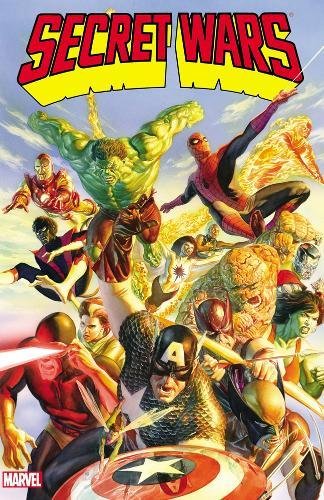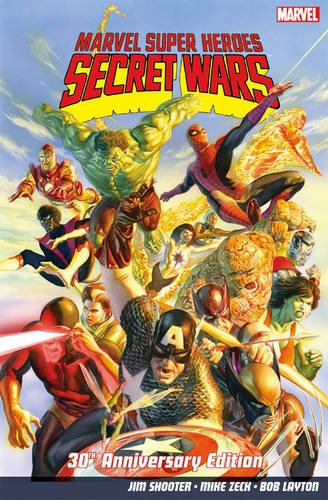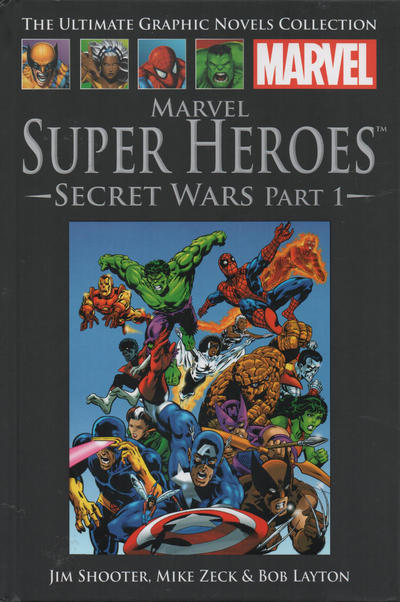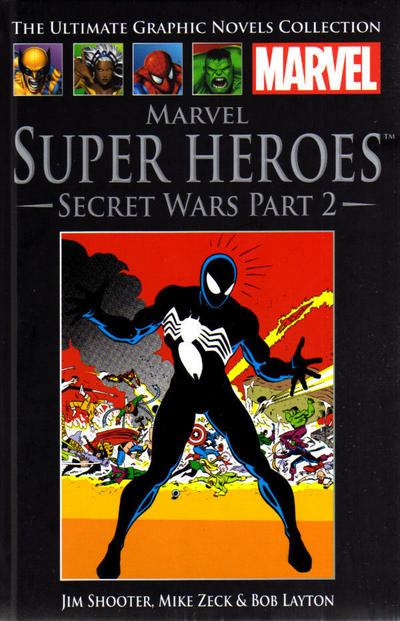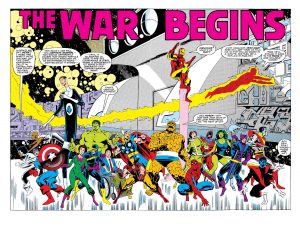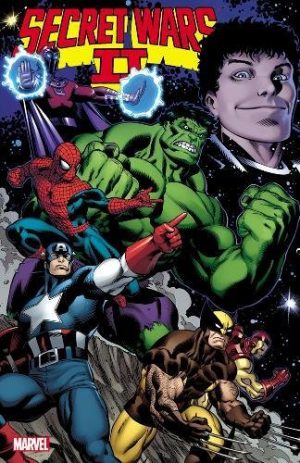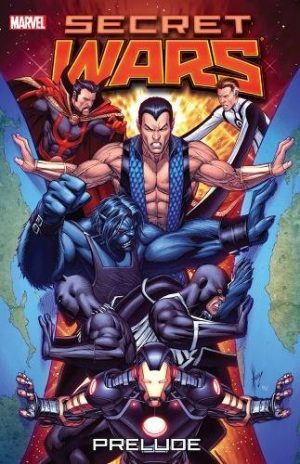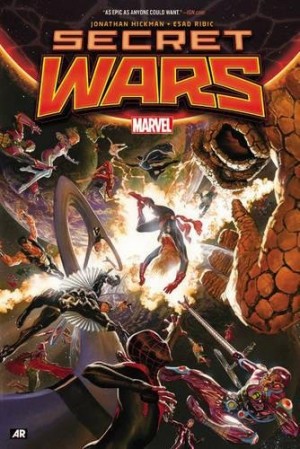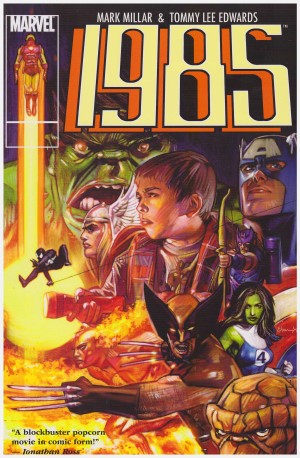Review by Frank Plowright
From the mid-1970s Marvel issued summer crossovers uniting several titles, but in 1984 they instituted a game changer, and for better or worse superhero comics have never been the same since. Editor in Chief Jim Shooter reasoned that if individual crossovers boosted sales, an event uniting the entire superhero line where all the heroes fought all the villains ought to be a blockbuster. He was right, and several associated ideas boosted revenue further, not least the line of action figures. Another was Secret Wars bringing changes to individual titles, and extrapolated from that was making the changes immediate. Pages from assorted titles are included here, ending issues with the hero in Central Park investigating a strange device and disappearing. The following issues of those titles note a year has passed and present a different Fantastic Four line-up or Spider-Man now wearing a black costume. If readers wanted to discover how these changes happened, they’d have to pick up the monthly instalments of Secret Wars. The combination of business acumen and intention to provide thrilling content is still to be admired. But how does Secret Wars read these days?
Inevitably, perhaps, somewhat primitively. That’s down to Secret Wars being aimed directly at the younger end of Marvel’s readership, in 1984 seen as the most likely to buy the associated action figures. Shooter further insists that everyone is identifiable to new readers, so the sequence following the splash page has the Wasp introducing the Avengers to the assorted heroes already well aware of who they are.
It’s a shame the dialogue and execution is so frequently clumsy, because stripped down Shooter’s plot is exciting and unpredictable, yet undeniably padded and repetitive to fill the pages. The assorted characters are made aware they’re in the presence of a power beyond theirs, and told if they kill their enemies they’ll be granted their heart’s desire. From the start the use of the relatively obscure Molecule Man as an uncertain and easily manipulated source of near infinite power is well handled, as is Doctor Doom’s aloofness and curiosity, and the escalating differences of opinion between heroes. After some introductory skirmishes three camps are established, and feet of clay are the order of the day, with some heroes acting more like villains, and some villains surprising.
Mike Zeck draws most of the story, with Bob Layton filling in on a few early chapters, both using distant viewpoints to pack as many people as possible into a panel. The lack of variety makes for less than sparkling pages, but there’s no criticising the storytelling clarity.
At half the length and less pandering to younger readers Secret Wars would be a tidy story, but then if your mother hadn’t thrown out your childhood comics you’d now be a millionaire. We have to deal with the world as it is, and Secret Wars made loads of money, but time hasn’t improved the quality. The ideas are explored far more satisfyingly in the 2018 Secret Wars. The phenomenal success prompted Secret Wars II a year later, and an oversized Omnibus edition combines these twelve chapters with four connected stories. If you were a thirteen year old Marvel fan in 1985, that’s the edition you’ll want. Alternatively UK readers can find the story split over two hardcover volumes for the partwork series The Ultimate Graphic Novel Collection.
